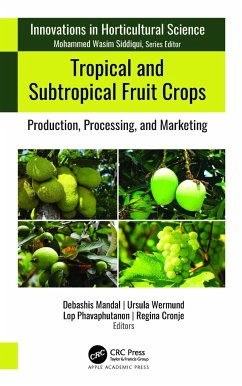
Biotechnology and the Politics of Plants
Disciplining Time
Versandkostenfrei!
Versandfertig in 6-10 Tagen
21,99 €
inkl. MwSt.
Weitere Ausgaben:

PAYBACK Punkte
11 °P sammeln!
Biotechnology and the Politics of Plants explores the mysterious phenomenon of 'apomixis', the ability of certain plants to 'self-clone', and its potential as a revolutionary tool for agriculture and enhancing food security, that may soon be a reality. Through historical anthropological and ethnographic study, Matt Hodges traces the development of the CIMMYT Apomixis Project, a prominent frontier research initiative, and its reinvention as a leading public-private partnership. He analyzes the fast-moving historical transition from public sector, mixed plant breeding approaches grounded in gene...
Biotechnology and the Politics of Plants explores the mysterious phenomenon of 'apomixis', the ability of certain plants to 'self-clone', and its potential as a revolutionary tool for agriculture and enhancing food security, that may soon be a reality. Through historical anthropological and ethnographic study, Matt Hodges traces the development of the CIMMYT Apomixis Project, a prominent frontier research initiative, and its reinvention as a leading public-private partnership. He analyzes the fast-moving historical transition from public sector, mixed plant breeding approaches grounded in genetics, to a contemporary era of agricultural biotechnology and genomics where PPPs are a leading format, and explores how social contexts of research shape how knowledge is produced, as well as what remains 'unknown', and constrain the development of an 'Apomixis Technology'. The chapters present an inventive approach informed by the anthropology of time, science and technology studies, and dialogue with the work of Gilles Deleuze, Paul Rabinow, Hannah Arendt, Andrew Pickering, and Eduardo Viveiros de Castro. Hodges outlines novel ways of integrating notions of history and becoming, and considers how apomixis offers up an alternative image of thought to theoretical concepts such as the well-known 'rhizome'. The book makes a valuable contribution to both the growing social scientific literature on genomics and biotechnology, and recent anthropological debates on time and history.














